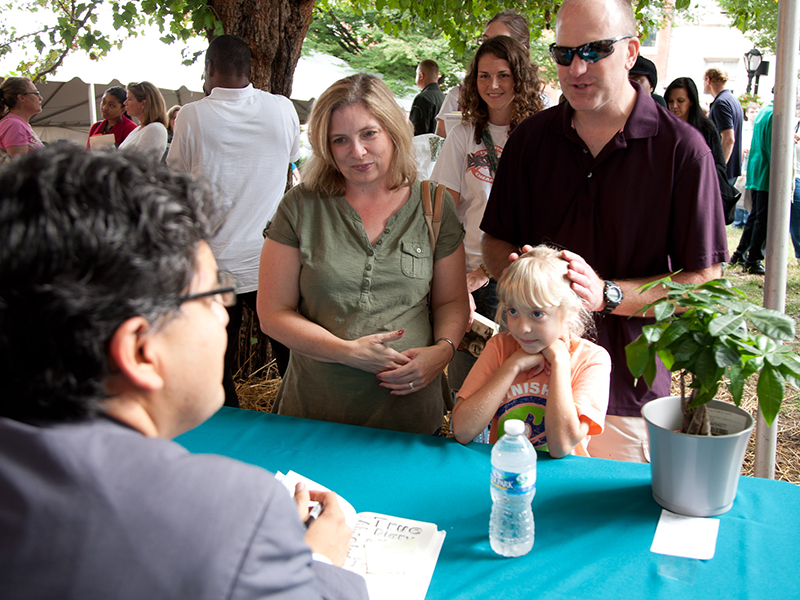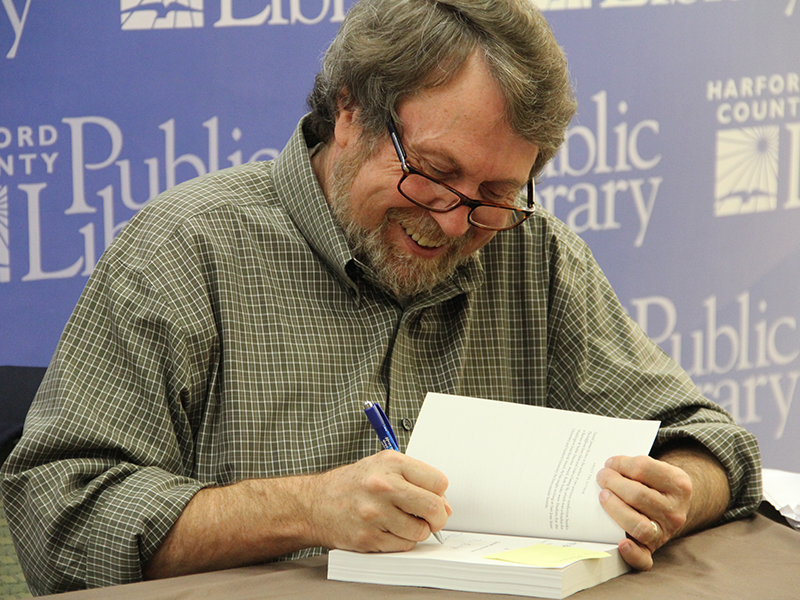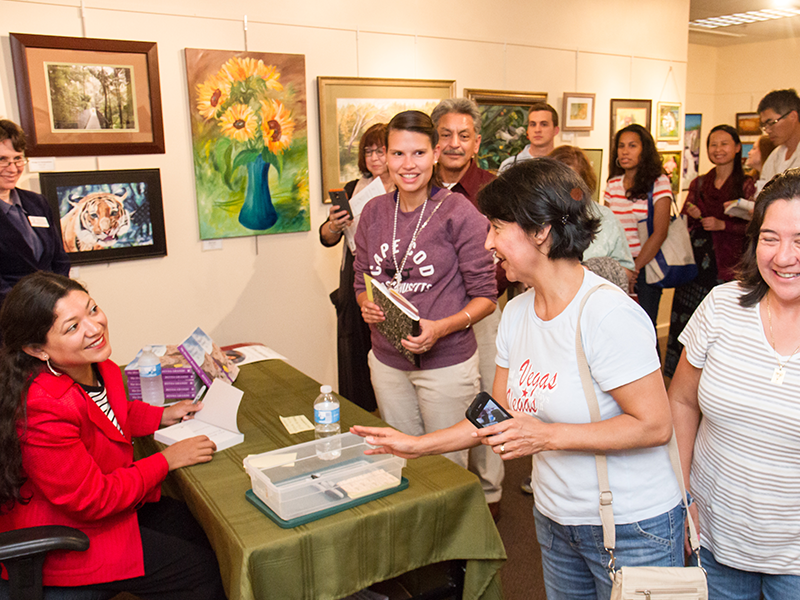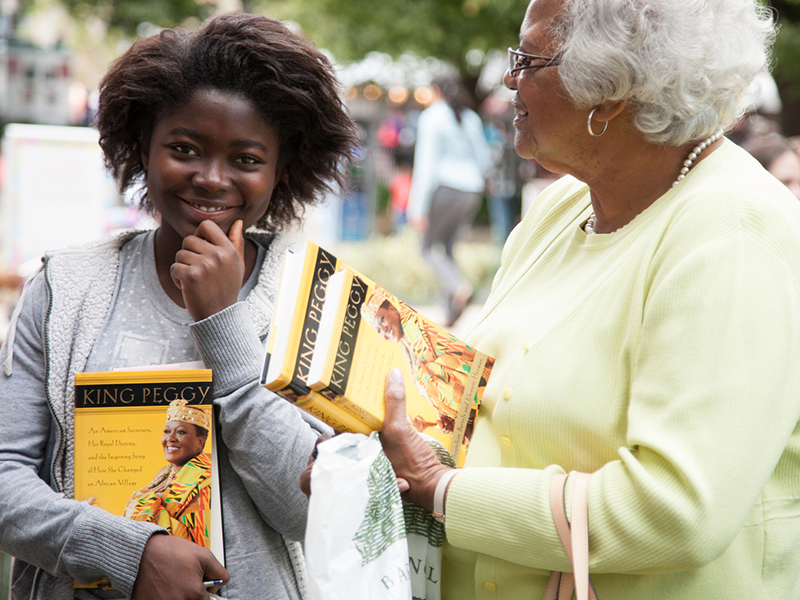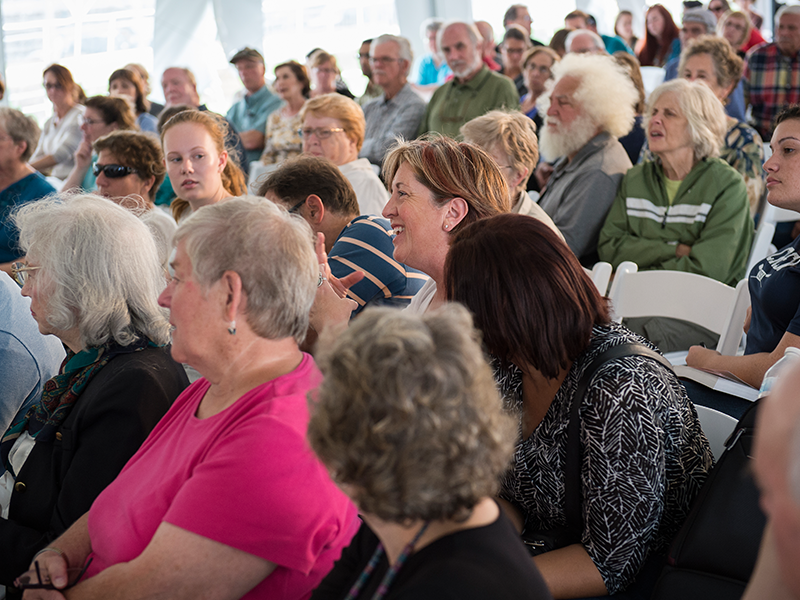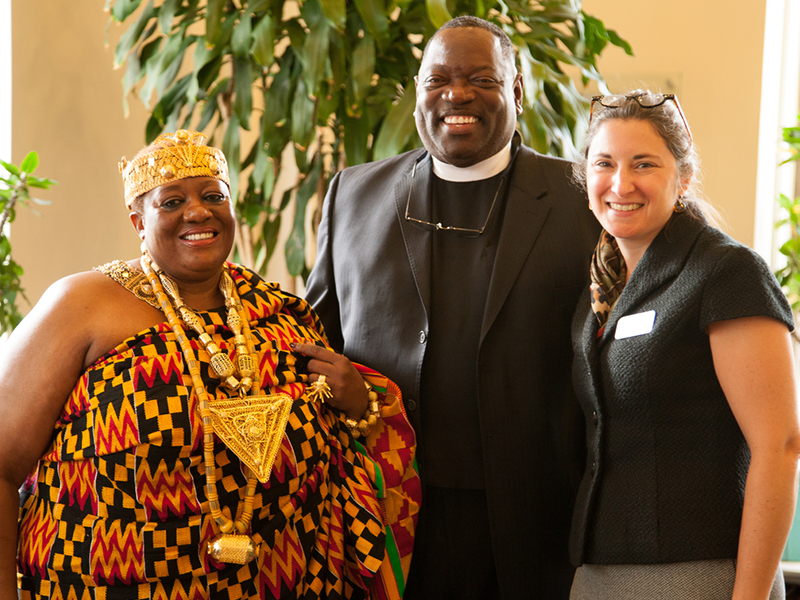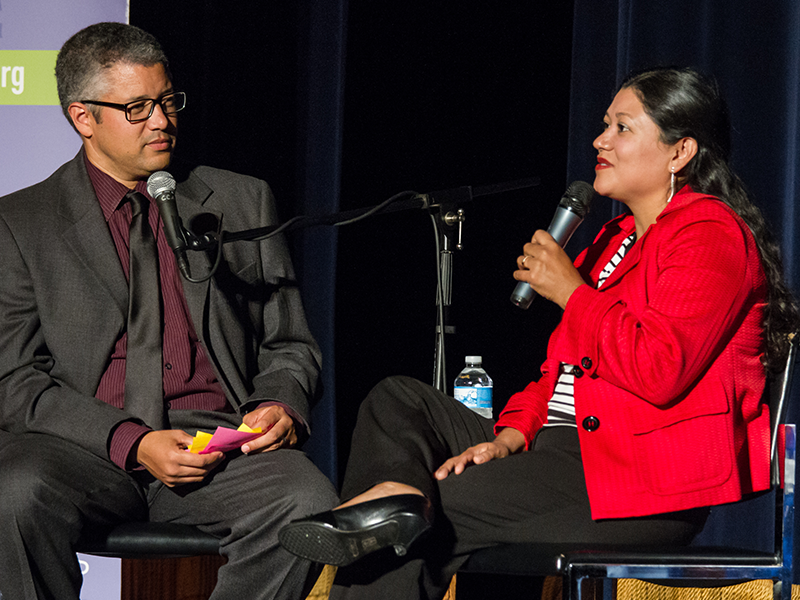Your One Maryland One Book questions answered!
- How is the One Maryland One Book chosen?Each fall, Maryland Humanities sends out a call for suggestions to the general public, educators, librarians, schools, book clubs, and other partners. The call for suggestions is based on an annual theme and pre-determined criteria.
Once the suggestions deadline has passed, the Maryland Humanities staff researches all suggestions to make sure they fit the established criteria. Then the selection committee takes the lead.
The selection committee narrows the list of potential choices to a top ten list. In January, the committee meets to discuss the top ten and narrows the list down to three choices, later voting to establish which book will be the One Maryland One Book pick.
- What are the selection criteria for One Maryland One Book?
In addition to having a focus on the yearly theme, the book can be either fiction or nonfiction and should be:
- published in 2015 or later
- up to 350 pages
- available in paperback, affordably priced
- available in print, audio, electronic format and, if possible, large print, film, or translation
- able to generate sustained discussion on the year’s theme
- of interest people in the state of Maryland
- appealing to a wide + diverse range of readers of different backgrounds and reading levels
- appropriate to high school age readers as well as adults
- What is the theme for the 2025 One Maryland One Book?
What We Collect, What We Tell
“Every generation confronts the task of choosing its past. Inheritances are chosen as much as they are passed on. The past depends less on ‘what happened then’ than on the desires and discontents of the present. Strivings and failures shape the stories we tell.” – Saidiya Hartman, Lose Your Mother: A Journey Along the Atlantic Slave Route.
The humanities are fundamentally an art of narrative—a complex tapestry of storytelling and recordkeeping. Whether expressed through pictures, recordings, paintings, or diaries, these materials help us interpret and reinterpret the past. In other words, they serve as a testament to what we value. The same goes for literature where writers perform acts of cultural preservation through stories they’ve taken from the research and ephemera of past lives and present them to their audiences.
As a humanities organization, we see our work as interpreting and re-interpreting materials from the past for audiences today. A book is the result of a writer choosing which stories to put forward from the experiences, research, and ephemera of the past: the diary, the photo, the recording, the heirloom. The same goes for the museum exhibit, the art show, or the conversations we have around it. In the end, what we record and save is the testament to what we value.
For this year’s One Maryland One Book, we want you to think about how we collect and use materials in order to tell and preserve the stories they hold — especially those in danger of being lost. How do we assemble them into new narratives that speak to today’s audiences?
The book you suggest can be fiction or nonfiction, interpret the theme of Connection figuratively or literally, and should appeal to both high school and adult audiences. You are welcome to suggest books of poetry, short stories, and plays too.
- How can I participate in One Maryland One Book?Visit the How to Participate page to learn how you can take part, either as an individual or as a program partner. Maryland Humanities offers free support materials—Reader’s Guides, Teacher’s Guides, bookmarks, and posters—to book groups, organizations, and businesses that sign on as official partners.
- Does Maryland Humanities give out free copies of the book?Given the statewide scope of the program, we are unable to provide copies of the book to individuals or book clubs. However, via the generosity of our donors, books are made available to participating public libraries and public high schools.
We update bookstores around the state once the book is selected. Check your local bookstore for a copy or let them know about the program!
Maryland Humanities provides some funding support to libraries and nonprofit organizations, as well as secondary and post-secondary schools, to foster creative public programming across the state.
- How do you choose the One Maryland One Book Author Tour stops?
For 2023, we have a limited author tour and are unable to have an open application. Typically each year, Maryland organizations are invited to co-host the statewide Author Tour. The author is typically available for a limited number of official tour stops, so the application process is competitive.
For information on funding support or the Author Tour contact Aditya Desai.
- Are One Maryland One Book events free or is there a cost to participate?All One Maryland One Book events, including the Author Tour, are free and open to the public. Seating is first-come first-served.
Sign up for Maryland Humanities email newsletter to receive advance notice of events, or connect with us on Facebook or on Twitter via @MDHumanities. Use the hashtag #1MD1BK to join the conversation!

